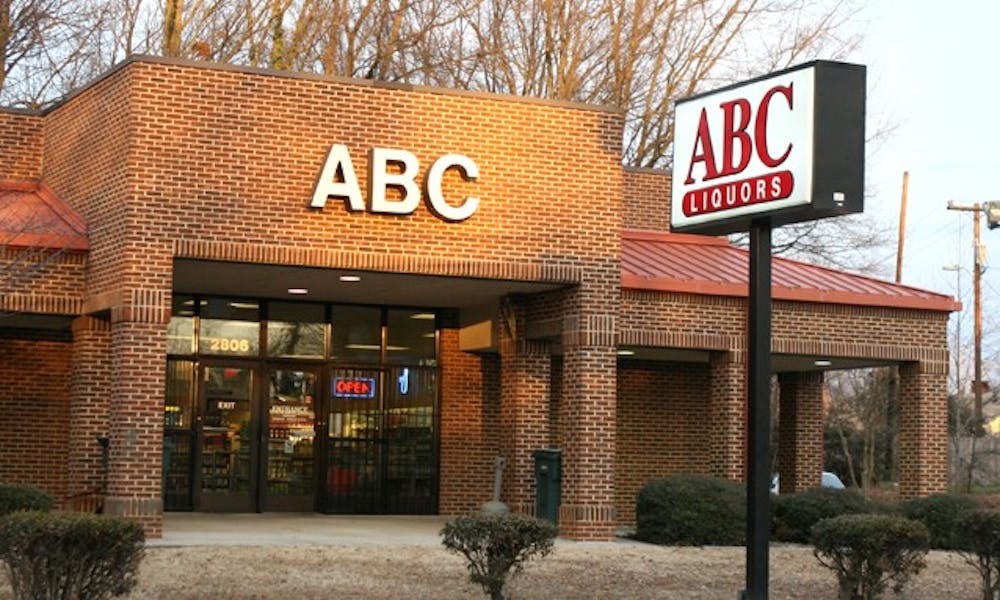North Carolina Gov. Roy Cooper issued an executive order Feb. 28 directing the North Carolina Alcohol Beverage Control Commission to quickly suspend any approved products made by Russian entities. In accordance with the order, North Carolina ABC stores will no longer sell spirituous liquor products produced by Russian entities until further notice.
The order comes after calls from North Carolina lawmakers to boycott Russian-made vodka. On Feb. 26, state Sen. Michael Garrett, a Guilford County Democrat, called on the ABC board to suspend Russian vodka sales.
“I understand that it is a small gesture and primarily symbolic, but I think at times like this symbolism means a lot,” Garrett told The News & Observer. “I think it’s important for the people of Ukraine to know where the people of North Carolina stand. I think it’s important for the rest of the global community to understand what our state is about—what our values are, what our principles are, what our priorities are.”
Lack of effects on vodka consumers
Figures released by the Distilled Spirits Council of the United States show that only about 1.2% of imported vodka in the U.S. comes from Russia. There are about $41 million worth of sales of Russian vodka every year in the U.S., compared to roughly $7 billion total worth of annual vodka sales. Thus, it is likely the boycott of Russian vodka will not greatly impact regular vodka consumers.
Less than 1% of vodka consumed in the U.S. is produced in Russia, and the majority of the vodka consumed in the U.S. is made domestically. Furthermore, according to the Distilled Spirits Council, vodka imported from Russia is on the decline, with imports being down 79% since 2011. Most of America's vodka import value is from France (39%), Sweden (18%), Netherlands (17%), Latvia (10%), the United Kingdom (5%) and Poland (5%).
ABC Spokesman Jeff Strickland told The Carolina Journal that the currently-affected Russian vodka brands at ABC stores across North Carolina are Hammer & Sickle, Beluga, Imperia, Zyr, Jewel of Russia and Russian Standard. The majority of popular vodka brands are based elsewhere, including Swedish brands Absolut and Svedka; French brands Ciroc and Grey Goose; and American brands New Amsterdam, SKYY and Smirnoff.
The history of Russia and vodka
Vodka was popularized in the United States by the James Bond franchise in 1953, after author Ian Fleming included a recipe for the famous Vesper Martini with vodka in his book Casino Royale. However, the drink has a long history of being associated with Russia and is one of its most visible exports.
Introduced to Russia in the 1300s, vodka has been “featured prominently in [Russia’s] social, political and militaristic arenas.” Vodka labels were even used as cash in Siberia amidst a financial crisis in the 1920s, and were handed out as a “commissar’s ration” to every Russian soldier during WWII. The day after Nazi Germany’s surrender was announced, the Soviet Union ran out of vodka due to the celebrations that occurred overnight. Vodka in Russia today continues to “pervade Russian culture, literature and film, [and] it is worshiped as a symbol of national pride and identity.” Nonetheless, only 14% of the world’s vodka is produced in Russia, most of which is sold there domestically.
However, vodka as an iconic drink is not unique to Russia. It is a symbolic and popular alcoholic beverage in a group of European countries called the Vodka Belt, which consists of various Northern and Eastern European countries including Ukraine.
Businesses across the Carolinas are boycotting Russian vodka and instead promoting Ukrainian brands, despite not being mandated to do so. Don Podrebarac, president of Southern Spirits in Indian Land, S.C., told WBTV that they were replacing their top seller, Deep Blue Russian Vodka, with Ukrainian Kozak vodka.
Consumers are also shifting their preferences toward Ukrainian vodkas as a show of support. In the six days before March 1, data from Drizly, an online drinks-ordering platform, showed that Ukrainian vodkas increased their share of the vodka category by 225%. Popular Ukrainian brands of vodka include Khor and Nemiroff, which have both seen increased sales in the past few weeks.
Oksana Markarova, Ukrainian ambassador to the U.S., told The Washington Post that businesses banning Russian vodka was not enough.
“Many vodka brands that trace their origin to Russia are actually no longer produced in Russia, so boycotts of those brands do very little to impact Russian businesses,” Brandy Rand, chief operating officer of the Americas at IWSR Drinks Market Analysis, told Bloomberg.
Stolichnaya vodka is a brand based in Latvia, but it has been commonly mistaken as Russian due to its former Soviet roots. On Tuesday, the company that owns Stolichnaya announced that it is rebranding the drink to its unofficial nickname “Stoli” as a direct response to Russia’s invasion of Ukraine in order to distance itself from implications of ties to Russia.
Get The Chronicle straight to your inbox
Signup for our weekly newsletter. Cancel at any time.

Jazper Lu is a Trinity junior and managing editor of The Chronicle's 119th volume.

